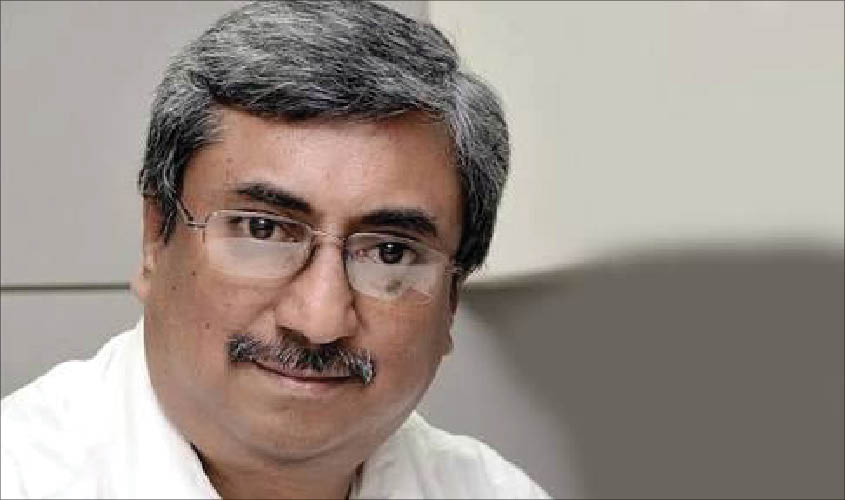Venkat Krishnapur, MD, McAfee India, talks on cybersecurity issues in India.
Venkat Krishnapur, Managing Director of McAfee India, a renowned cyber security service provider, spoke to The Sunday Guardian on issues concerning cyberspace. Excerpts:
Q: How safe do you think is the cyberspace in India?
A: India is no different from the rest of the world. In fact, the Indian cyberspace is still a very fertile ground for cyber criminals. Comparatively, the country is more vulnerable than its global counterparts. Our corporates and enterprises understand the consequences better and many of them are actually taking necessary steps to stay safe. There is certainly a scope of improvement and adopting the right security posture across the board. It is not just from the data leakage suspect point that I look at India. I also look at it from the perspective of how vulnerable the common citizen is. In particular, the Digital India initiative and the government’s push for cashless economy have increased the vulnerability of the country as the number of people transacting online has gone up exponentially.
Q: According to a survey which was done by your organisation, 55% of the total population have no awareness about internet security. How do you see this?
A: As a usual pattern in India, people do not work till the time the government forces them through laws. For example, people know that insurance is required in case something happens, but do not necessarily buy till the time it is not mandated by the government in this country. So due to ignorance and a lackadaisical attitude, the country is being exposed to the malicious intents of cyber criminals. This certainly needs to change and people need to realise that the risks are high and real. The stakes in the event of being subjected to cyber criminals are very high as well.
Q: Do you think that people need to be more educated about cybersecurity in the country?
A: Absolutely, it is not just about cybersecurity. It is also about making sure that they use the right tools that are required to help them mitigate the risk of cyber attacks.
Q: At a time when the government is focusing on promoting a cashless economy, under its Digital India programme, how effective do you think are our cyber laws?
A: I have been in constant touch with government agencies at the Centre and states on this issue and I certainly see an increased focus and sense of urgency from the government as far as cyberspace is concerned. We still have laws that can lead to conviction in case of any cyber crime, but there is a certain scope of improvement in our cyber laws. It is also important for the government to enhance the physical infrastructure to help build a safer cyberspace.
Our organisation works with Central and state agencies on a variety of initiatives ranging from training to providing state-of-the-art solutions to different government departments. We also have our CSR policy which aims to educate users on the risks attached to cyberspace.
Q: The usage of IoT (Internet of Things) devices in our daily lives has multiplied, but the manufacturers are giving less importance to the security of these devices. How do you see this?
A: Today’s homes have an average of anywhere close to about 10-15 devices connected to their home network. Between mobile phones, tablets, PCs, smart TVs, and other IoT enabled devices, the number is only going up and a smartphone today is a reality. People can now use voice commanding their refrigerators, bulbs, etc. It is a sensor driven world. Most of these devices are low memory devices with very little compute capability and these are completely exposed.
Q: What are the different types of hacking methods that hackers are using now that you have come across?
A: McAfee Labs is seeing almost 500 new pieces of malware per minute. The criminals are working overtime to infiltrate both corporate houses and domestic consumers It just needs one link across the stack to be successfully attacked. Very recently, MiraiDDOS attack, Wannacry and Petya to Spectre/Meltdown are cases in point.
All these attacks have happened in the last one year. The attack surface has increased, attack weapons have increased and the attackers are using the most ingenuous and sophisticated means while targeting their next victim. For example, “Power Shell” is being increasingly used to launch file-less malware attacks, and financial sectors are being attacked with ransom-ware.
Q: Can you name some of the innovations McAfee has been looking at?
A: We are doing a number of innovations that will be using Artificial Intelligence (AI). Recently, we have provided security platform on a watch to one of our partners that has an SOS button to trigger an alarm in case you are in danger.
When you look at some of these innovations, they are smart and useful in providing protection to children and women. When you look at some of these innovations across the consumer side, certainly our ability to get on to the security routers will be our priority and we have a number of partnerships in play that are already in the market.

